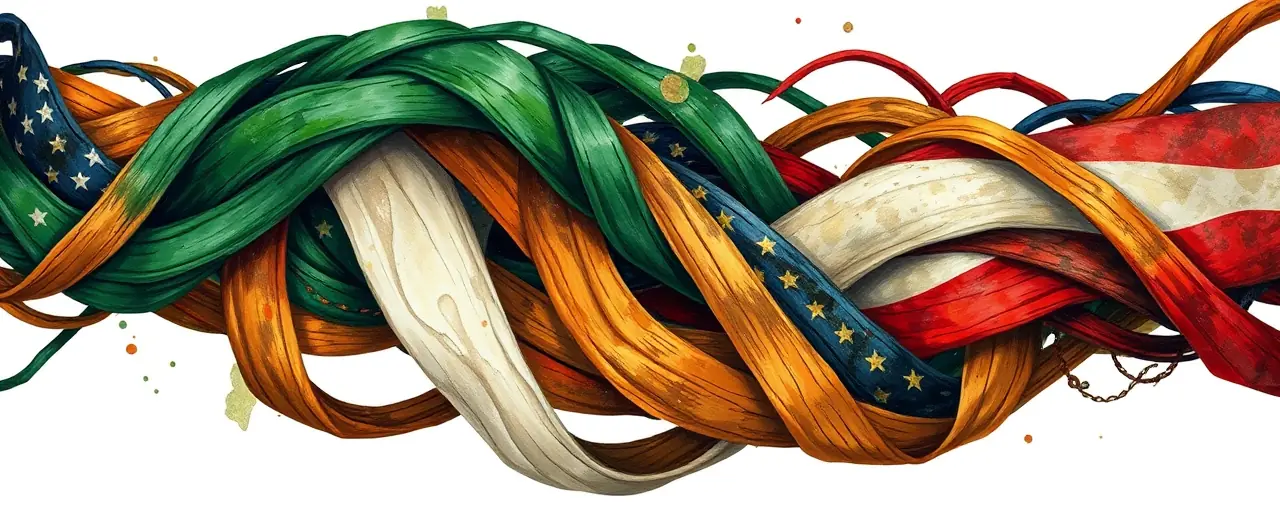A Call to Reclaim a Fractured Bond
The United States and Nigeria stand at a crossroads. On April 4, 2025, Deputy Secretary of State Christopher Landau dialed up Nigerian Foreign Minister Yusuf Tuggar, a conversation that radiated promise, underscoring a partnership that has weathered decades of turbulence. Yet, beneath the diplomatic pleasantries lies a stark reality: this relationship, vital to both nations, teeters on the edge of neglect. For those who care about global equity and stability, the stakes couldn’t be higher.
This isn’t just about two countries exchanging polite words. Nigeria, a powerhouse in West Africa, holds the key to regional peace and economic vitality, while the U.S. benefits from a strategic ally in a world increasingly defined by rivalries. The call highlighted ambitions to strengthen commercial ties, enhance security, and deepen bilateral bonds. But ambition alone won’t cut it. Action, rooted in mutual respect and shared prosperity, is what’s needed, and it’s what’s been sorely lacking under policies that prioritize isolation over collaboration.
For everyday people, from Lagos street vendors to American factory workers, this partnership isn’t abstract. It’s about jobs, safety, and a future where both nations thrive. Letting it falter now, amid global upheaval, would be a betrayal of those who stand to gain the most. The U.S. has a chance to lead with purpose, not just power, and Nigeria deserves a partner that sees its potential, not just its problems.
The Cost of Turning Away
Look at the numbers, and the urgency snaps into focus. The Trump administration’s recent 14% tariff on Nigerian exports threatens to slash Nigeria’s earnings by up to $1.2 billion annually. That’s not a statistic; it’s a gut punch to farmers, oil workers, and families already grappling with economic volatility. Nigeria’s crude oil, once a cornerstone of U.S. energy imports, now faces a market squeezed by America’s shale boom and protectionist flexing. The African Growth and Opportunity Act, set to expire in September 2025, hangs in the balance, leaving duty-free access for Nigerian goods in jeopardy.
Security ties, too, reveal a partnership at risk. Yes, the U.S. has bolstered Nigeria’s fight against Boko Haram with $997 million in Viper helicopters and Super Tucano aircraft. The Africa Partnership Flight in Abuja last year laid groundwork for a 2026 humanitarian exercise. But equipment alone doesn’t win trust. Civilian harm persists, accountability lags, and Nigeria’s security forces need more than hardware, they need a partner committed to human rights, not just headlines.
History backs this up. Since 1960, when Nigeria broke free from British rule, the U.S. has been a steady, if imperfect, ally. The 1960s saw $225 million in aid flow to Nigeria’s young democracy, a gesture of goodwill. The return to civilian rule in 1999 under Olusegun Obasanjo rekindled that spirit, with trade and counterterrorism forging a pragmatic bond. Yet today, embassy closures signal retreat, not renewal, leaving citizens on both sides without consular lifelines and deepening a rift that began with visa bans over alleged election fraud in 2019.
Some argue this pullback protects American interests, that tariffs level the playing field against Nigeria’s 27% levy on U.S. goods. They’re wrong. Reciprocal trade barriers might tweak short-term balances, but they choke long-term growth. Nigeria’s importers could save on U.S. machinery, sure, but local manufacturers will drown under the competition. Isolationism doesn’t build strength; it breeds resentment and lost opportunity.
Global currents make this clearer. Nigeria’s pivot toward BRICS and China isn’t a snub; it’s survival. With U.S. engagement waning, Nigeria balances its ambitions, a UN Security Council seat, G20 membership, against the reality of coups destabilizing West Africa and climate change battering its shores. The U.S. can’t afford to let this ally drift into rival orbits, not when cooperation could anchor both nations against these storms.
A Vision Worth Fighting For
What’s the alternative? A partnership that doubles down on fairness and shared goals. The U.S. could slash those tariffs, renew AGOA, and invest in Nigeria’s push for economic diversification beyond oil. Imagine American expertise fueling Nigeria’s renewable energy sector or joint ventures lifting rural communities out of poverty. Security cooperation could evolve, too, with training that prioritizes accountability alongside firepower, ensuring Nigeria’s forces protect, not imperil, their own people.
This isn’t naive idealism. It’s pragmatism with a pulse. Nigeria’s foreign policy has long centered Africa, leading ECOWAS and the African Union to stabilize a continent the U.S. claims to care about. Since the Cold War, when Nigeria resisted communist tides, to the post-9/11 era, when it stood firm against terrorism, this nation has proven its mettle. Rewarding that with partnership, not punishment, aligns with America’s best instincts, the ones that built bridges, not walls, in the 20th century.
The call between Landau and Tuggar wasn’t just a photo op. It was a lifeline. For readers new to this, think of it this way: Nigeria’s success ripples outward, steadying a region, boosting trade, saving lives. America’s role isn’t to dictate, but to collaborate, to show that power can mean lifting others up, not holding them back. Anything less is a failure of vision, and we’re too far along to settle for that.
